According to Minister of Planning and Investment Nguyen Chi Dung, the development of the Law aims to promptly remove urgent institutional difficulties and problems, simplify administrative procedures and promote decentralization and delegation of power in the fields of planning, business investment, investment under the public-private partnership method and bidding.
On October 30, the National Assembly discussed in groups the draft Law amending and supplementing a number of articles of the Law on Planning, the Law on Investment, the Law on Investment under the public-private partnership model and the Law on Bidding.
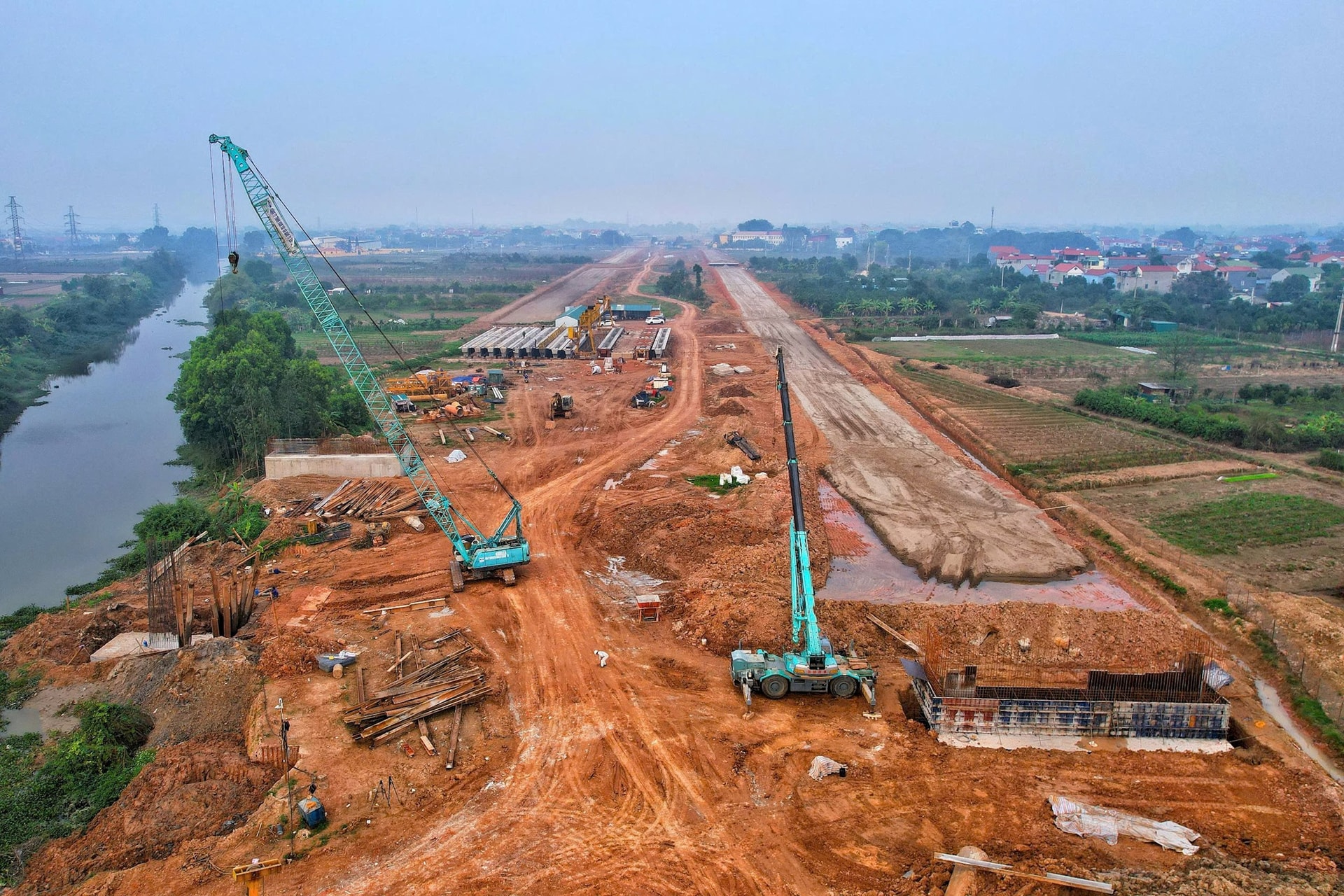
The Draft Law aims to focus on amending contradictory regulations that are causing difficulties and urgently need to be amended to create favorable conditions for investment, production and business activities.
Terminate slow-progressing projects that waste land
Specifically, according to Minister of Planning and Investment Nguyen Chi Dung, regarding the amendment of the Law on Planning, a number of contents of the Law on Planning have been amended, such as: clearly defining the relationship between technical and specialized planning and planning under the national planning system to resolve problems regarding the basis for planning when the higher-level planning has not been approved. Delegating authority to the provincial People's Committee to issue plans to implement provincial planning and supplementing regulations to adjust the planning implementation plan to create initiative and flexibility for localities in organizing planning implementation.
Regarding the amendments to the Investment Law, Mr. Dung said that this Law amends and decentralizes the Prime Minister's approval of investment policies to the provincial People's Committees for investment projects in construction and business of infrastructure in industrial parks and export processing zones. It stipulates the termination of activities for projects that are behind schedule, projects that have not been implemented for many years, causing waste of land in order to free up resources for socio-economic development.
Regarding the amendment to the Law on Investment under the Public-Private Partnership (PPP) method, the Minister of Planning and Investment said that this Law adds a type of BT contract that does not require payment to apply to infrastructure works and public service provision projects that investors themselves propose to invest in and build and transfer to the State without requiring payment for construction investment costs.
Regarding the financial mechanism for PPP projects, a flexible mechanism is applied in allocating state capital to participate in the implementation of PPP projects by continuing to stipulate the state capital ratio at 50% and assigning the Prime Minister or the Provincial People's Council to decide on a higher state capital ratio but not exceeding 70% of the total investment for the project. Decentralize the People's Council at the grassroots level to appraise the feasibility study report for projects under the Prime Minister's authority to decide on investment policies.
The amendment to the Law on Bidding amends a number of contents, allowing the approval of contractor selection results before the project is approved or the signing of contracts with contractors before international treaties and foreign loan agreements are signed to help save time and speed up the implementation of projects and bidding packages. At the same time, amend and supplement a number of other contents to remove obstacles, increase competitiveness in bidding, and ensure the rights of subjects during the bidding process.
Reviewing the draft Law, Mr. Vu Hong Thanh - Chairman of the National Assembly's Economic Committee said that the Economic Committee found that the draft Law dossier basically meets the requirements of the Law on Promulgation of Legal Documents. The draft Law amends and supplements many regulations related to planning, implementation of business investment activities, investment under the public-private partnership model and bidding activities, including regulations directly related to resources, state budget, authority, decentralization, delegation of power to ministries, branches, localities, and administrative procedures.
Regarding project revocation, National Assembly member Hoang Duy Chinh (Bac Kan delegation) proposed stricter regulations in the direction that if the commitment is not fulfilled, the project must be revoked, instead of delaying the implementation of the land before revocation as in the current law. At the same time, amend the regulations on investment licensing to be more strict, ensuring that resources are not wasted.
According to National Assembly Deputy Vu Dai Thang (Quang Binh Delegation), the Investment Law, PPP Law and Bidding Law are newly passed laws but have not really been effective in the process of socio-economic development. Specifically, there are difficulties in site clearance, slow disbursement, delays in investment procedures, waiting between planning at one level and planning at another, and delays in converting land and forest use purposes. Therefore, it is necessary and urgent for the Government to submit to the National Assembly a comprehensive amendment of the provisions that are still entangled and conflicting with each other. Otherwise, it will waste the country's resources.
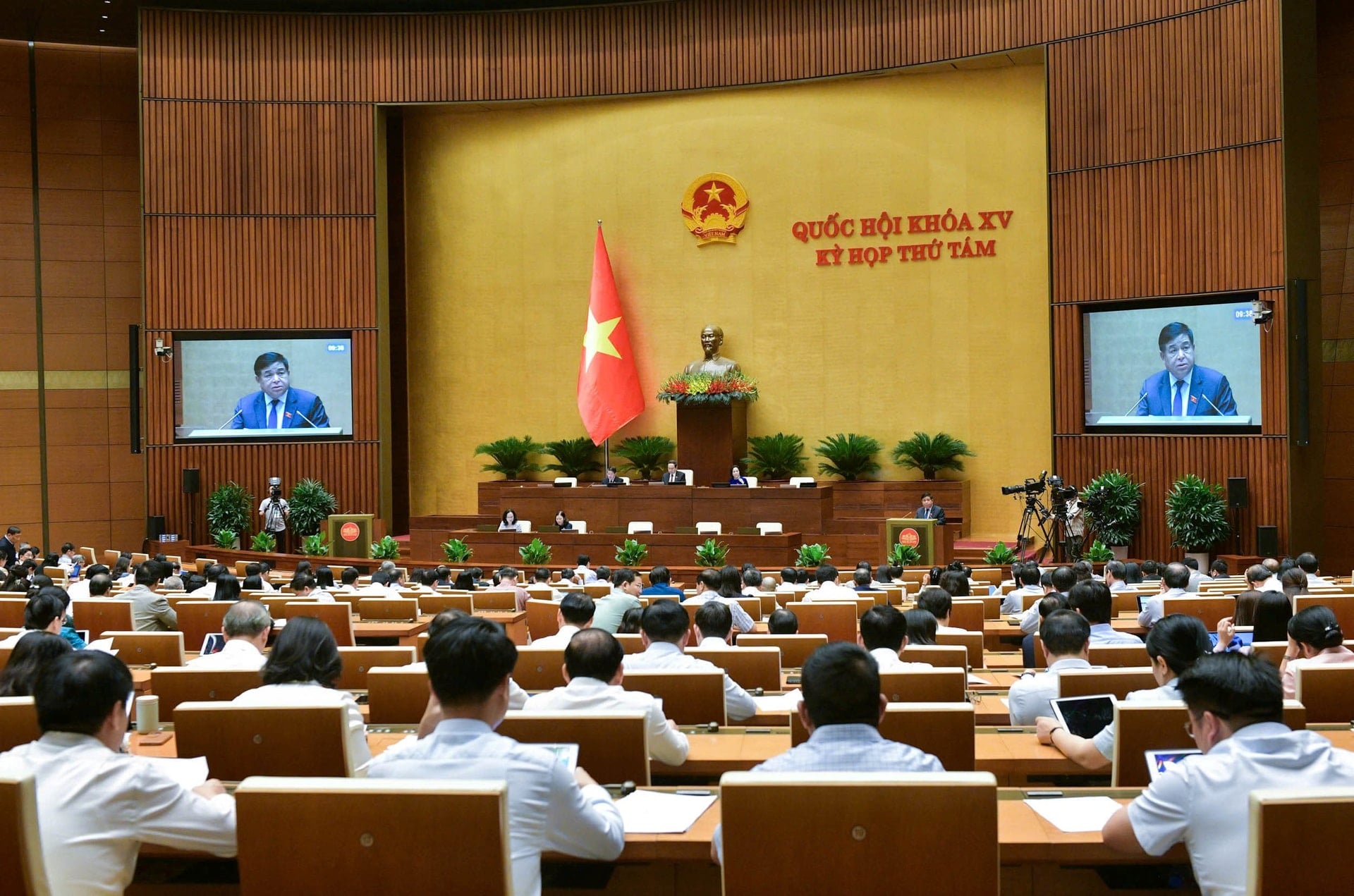
Creating equality according to market mechanisms
National Assembly Deputy Ta Dinh Thi - Vice Chairman of the National Assembly's Committee on Science, Technology and Environment expressed the necessity of promulgating the Law "1 law amending 4 laws" to remove difficulties and obstacles in practice, especially issues related to the Law on Planning and specialized laws that need to be adjusted.
Regarding the Planning Law, according to Mr. Thi, the Law on Geology and Minerals and the Electricity Law have not been synchronized with the Planning Law, so they need to be handled immediately. Currently, there are specialized plans that specify many specific parameters. Electricity has developed a power supply network, but according to the current plan, it is no longer there and is integrated into the provincial planning without specific details. In fact, the parameters need to be adjusted promptly.
Or like the Prime Minister approves national electricity. The Government proposes to delegate this authority to the Minister of Industry and Trade. In principle, whichever level approves, that level will adjust the planning. As for the provincial level, it is assigned to the Chairman of the Provincial People's Committee. Therefore, the above issue needs to be considered and studied. If there is an adjustment, it should be adjusted immediately to remove obstacles.
Regarding the Investment Law, Mr. Thi emphasized that the need for marine economic development is very large. The central government has issued a specialized resolution on the marine economic development strategy until 2030, with a vision to 2024. In which, the contribution of coastal provinces to the country's growth is expected to be 70-75% of GDP. "Currently, investment projects on land are clear, but the responsibilities and authority for projects on the sea are not clearly stated. For example, the issue of offshore wind power needs further research to create conditions for the development of coastal localities in the coming time," said Mr. Thi.
National Assembly member Hoang Van Cuong (Hanoi Delegation) also said that in planning adjustments, attention should be paid to whichever level approves the adjustment. However, local adjustments need to be decentralized, but the project objectives and space cannot be changed. "For example, planning to build a school but adjusting it to move the school to a remote area does not ensure space issues. On the contrary, it is unreasonable that the Thien Y waste-to-energy plant does not allow the capacity to be adjusted from 70-90MW when it is still in the same location, only the capacity is changed" - Mr. Cuong compared.
Regarding the PPP Law, according to Mr. Cuong, it must be attractive. Because currently, investors are "afraid" of PPP and do not dare to enter because of the risk mechanism. "For example, toll-collecting traffic projects, if toll collection is not allowed now, who will dare to invest? Therefore, it is necessary to have a mechanism to handle risks, commit to sharing and responsibility, which clearly defines the responsibility of the agency approving the PPP project. Otherwise, investors will be afraid and will not dare to enter."
Regarding BT projects, Mr. Cuong said, “it’s like a double-edged sword.” Because of the great benefits and high efficiency if well managed. Otherwise, the opposite is true. Therefore, it must be accompanied by conditions of fast time and fast costs. It must be equal according to the market mechanism, but creating “barriers” and negativity is not allowed.
Switch from pre-control to post-control
Regarding the PPP Law, Permanent Deputy Prime Minister Nguyen Hoa Binh said that we have many methods of mobilizing social resources (stock market, bonds). The public-private partnership method is a form of mobilizing social resources. The Permanent Deputy Prime Minister gave an example: the North-South high-speed railway is being discussed, but state resources are only a part, other resources must be mobilized to do it.
According to Minister of Planning and Investment Nguyen Chi Dung, countries today are constantly innovating and reforming. If Vietnam does not innovate and reform, investors will certainly not come or will come and then go. The State currently has many rights. The right to do what, who to do, where to do it, how to do it? As for investors, they only have one right: "not to do it". Therefore, the design of the Law must harmonize between state management and at the same time encourage domestic and foreign investors to invest in business and investment. If the provisions of the law cannot do this, the country will lose opportunities. Losing opportunities means losing everything, losing jobs for the people, losing state budget revenue, losing development opportunities.
According to Minister of Planning and Investment Nguyen Chi Dung, in the past, we built laws mainly for management, but now we must not only manage but also promote development. We must abandon "if you can't manage, then ban" and "ask - give". Then there is your power and my power. Ministries and branches often cling to your power and my power from general laws to specialized laws, but mainly create procedures and create power. When there is power, there will be interests, group interests and personal interests. That hinders the country's development. This time we must overcome, and this time the direction will shift strongly from "pre-control" to "post-control", decentralize more thoroughly, and cut administrative procedures more substantially. Procedures must be concise to reduce time and costs for investors, and not lose opportunities for investors.
9th working day, 8th session, 15th National Assembly
On October 30, the National Assembly continued its 9th working day, 8th Session, 15th National Assembly at the National Assembly House under the chairmanship of National Assembly Chairman Tran Thanh Man.
Morning: Under the direction of Vice Chairman of the National Assembly Nguyen Duc Hai, the National Assembly held a plenary session to listen to the following contents: Minister of Planning and Investment Nguyen Chi Dung, authorized by the Prime Minister, presented the Report on the draft Law amending and supplementing a number of articles of the Law on Planning, the Law on Investment, the Law on Investment under the form of public-private partnership and the Law on Bidding; Chairman of the National Assembly's Economic Committee Vu Hong Thanh presented the Report on the review of the draft Law amending and supplementing a number of articles of the Law on Planning, the Law on Investment, the Law on Investment under the form of public-private partnership and the Law on Bidding...
After that, the National Assembly discussed in groups: The draft law amending and supplementing a number of articles of the Law on Planning, the Law on Investment, the Law on Investment under the public-private partnership model and the Law on Bidding; the draft resolution on piloting the handling of evidence and assets during the investigation, prosecution and trial of a number of criminal cases.
Afternoon: The National Assembly held a plenary session to conduct the following activities:
Content 1: Under the direction of Vice Chairman of the National Assembly Tran Quang Phuong, the National Assembly listened to Member of the National Assembly Standing Committee, Chairman of the National Assembly's Defense and Security Committee Le Tan Toi present a Report explaining, accepting and revising the draft Law on People's Air Defense. After that, the National Assembly discussed a number of contents with different opinions of the draft Law on People's Air Defense... At the end of the discussion, Minister of National Defense Phan Van Giang spoke to explain and clarify a number of issues raised by National Assembly deputies.
Content 2: Under the direction of Vice Chairman of the National Assembly Nguyen Khac Dinh, the National Assembly listened to the following contents: Minister of Home Affairs Pham Thi Thanh Tra, authorized by the Prime Minister, presented the Government's Submission on the draft Resolution on the organization of urban government in Hai Phong City. Chairman of the National Assembly's Law Committee Hoang Thanh Tung presented the Report on the examination of the draft Resolution on the organization of urban government in Hai Phong City; Minister of Home Affairs Pham Thi Thanh Tra, authorized by the Prime Minister, presented the Government's Submission on the establishment of Hue City under the Central Government...
Source: https://daidoanket.vn/sua-doi-luat-loai-bo-xin-cho-10293474.html


![[Photo] General Secretary To Lam, Secretary of the Central Military Commission attends the 12th Party Congress of the Army](https://vphoto.vietnam.vn/thumb/1200x675/vietnam/resource/IMAGE/2025/9/30/9b63aaa37ddb472ead84e3870a8ae825)
![[Photo] The 1st Congress of Phu Tho Provincial Party Committee, term 2025-2030](https://vphoto.vietnam.vn/thumb/1200x675/vietnam/resource/IMAGE/2025/9/30/1507da06216649bba8a1ce6251816820)
![[Photo] General Secretary To Lam receives US Ambassador to Vietnam Marc Knapper](https://vphoto.vietnam.vn/thumb/1200x675/vietnam/resource/IMAGE/2025/9/29/c8fd0761aa184da7814aee57d87c49b3)


![[Photo] Solemn opening of the 12th Military Party Congress for the 2025-2030 term](https://vphoto.vietnam.vn/thumb/1200x675/vietnam/resource/IMAGE/2025/9/30/2cd383b3130d41a1a4b5ace0d5eb989d)
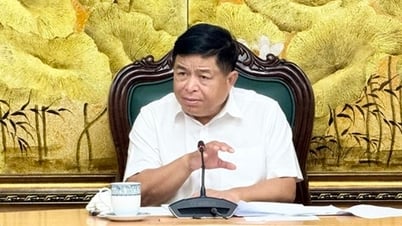



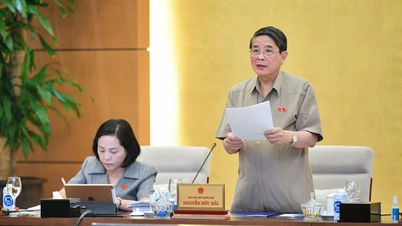

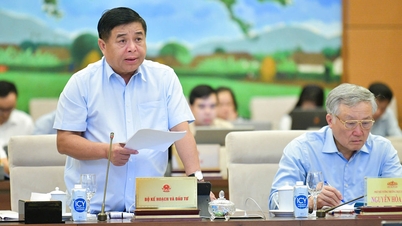
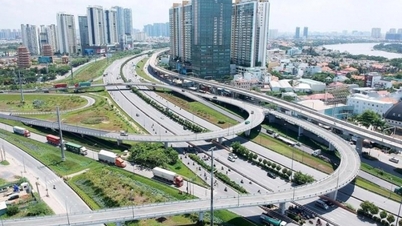



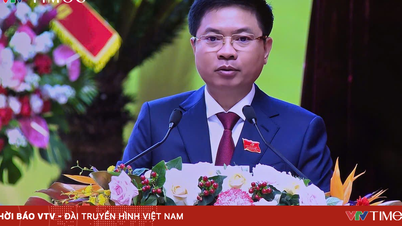





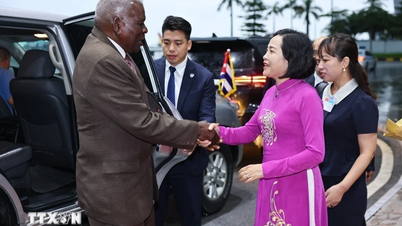
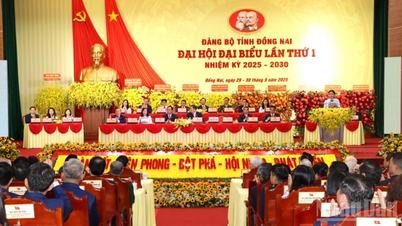

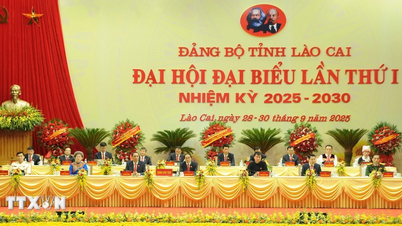






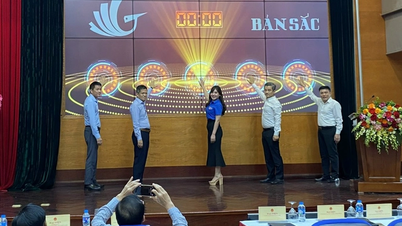



![[Photo] General Secretary To Lam attends the ceremony to celebrate the 80th anniversary of the post and telecommunications sector and the 66th anniversary of the science and technology sector.](https://vphoto.vietnam.vn/thumb/1200x675/vietnam/resource/IMAGE/2025/9/29/8e86b39b8fe44121a2b14a031f4cef46)




































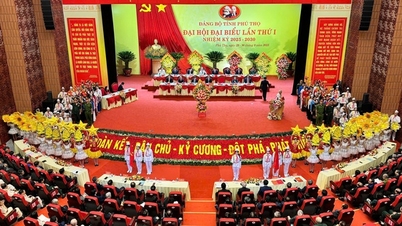

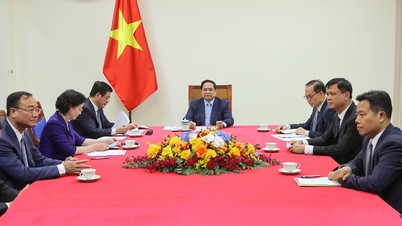


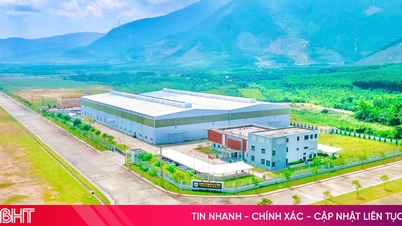

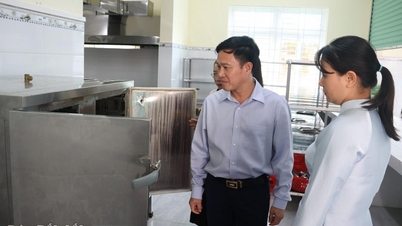



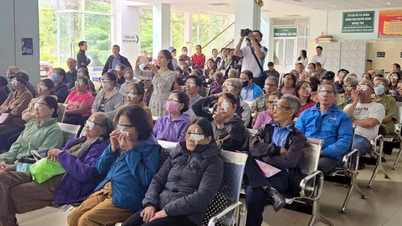














Comment (0)